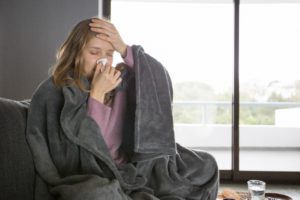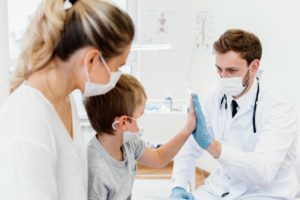Winter is here, and with it the driest and coldest days of the year, unfortunately accompanied by outbreaks of flu, colds, allergies, pneumonia, respiratory crises and other discomforts.
Some illnesses and malaises are more frequent in certain seasons than in others. This is because the variations of time, climate and temperature exert a great influence on the human body.
Winter and Colds In most of Brazil, winter is characterized by the predominance of cold and dry days. These two factors aggravate the occurrence of respiratory diseases such as asthma attacks, bronchitis, pneumonia, sinusitis, rhinitis and bronchiolitis.
In the state of São Paulo, according to data issued by the SUS – Sistema Único de Saúde, in 2020 about 60% of annual hospitalizations were due to respiratory diseases and were concentrated between the months of March and August, the autumn and winter months.
How to prevent yourself?
The change of season is inevitable! So, to get the most out of it and go through the winter with good mood and health, some precautions can be taken:
Drink water: Drinking at least 2 liters of water a day keeps your body well hydrated.
Stay in ventilated environments: On cold days it is common for people to gather indoors. This ends up favoring the spread of viruses, especially the flu.
Flush the nose and eyes with saline: This helps to unclog the airways and keep the nasal and eye mucosa hydrated.
Have more contact with nature: Studies show that green areas minimize the effects of thermal contrast, as they have an ideal humidity level for human comfort.
Practice exercises: Physical activities during cold days ensure a stronger immune system, it is important to avoid times when humidity is lower, such as in the afternoon, for example.
Take advantage of dry weather and take your clothes out of the closet: Dry weather can help us fight the fungi and mites that cause allergies. Take the opportunity to let your stored clothes catch the sun.
Consult a doctor: If even taking all these precautions you are still experiencing any symptoms, be sure to look for a specialist, as the condition can get worse.
When going to a health care point, observe if the place is well ventilated, people wearing a mask and most importantly: if the professionals in the place are using the proper PPE. Depending on the location, gloves and a mask are enough, but don’t forget: these two items are mandatory for any doctor or nurse.
Kevenoll do Brasil provides gloves of proven quality, providing safety to the health of professionals and patients.
For more information, follow us on Facebook and LinkedIN.
Access the website!



